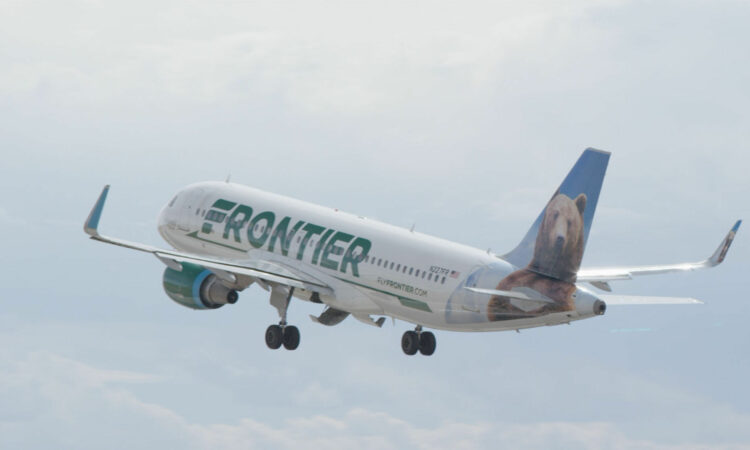The big three U.S. ultralow-cost carriers (ULCCs) have improved their per-passenger revenue during the pandemic for add-on items such as checked and carry-on bags as well as seat selections.
But with fees for those items varying by the flight on Frontier, Spirit and Allegiant, travelers and travel advisors have to shop carefully to determine if they are truly getting a deal.
“You want to have a full picture of the overall price you are going to pay, rather than just the airfare,” said Scott Keyes, founder of Scott’s Cheap Flights travel site.
“I think, unfortunately, you have to shop,” added Jay Sorensen, president of IdeaWorks, which consults airlines on how to boost ancillary revenue. “It may be that the fare on Spirit is low enough and adding two bags may still be less than what you’d pay on one of the majors.”
In earnings reports this spring, each of the three primary U.S.-based ULCCs reported that while fares for the first quarter had been down compared with the same period of pre-pandemic 2019, non-fare passenger revenue, which largely comes from add-on products such as baggage, seat selection and bundled fares, was up on a per-passenger basis.
Base fares have climbed everywhere since early this year — figures that will be reflected by the ULCCs when they report on second-quarter earnings over the coming weeks. But in the first quarter, Frontier reported one-way ancillary revenue per passenger of $69, up 21% from 2019. By comparison, fares over the first quarter were just $42, down 23% from three years earlier.
At Spirit, first-quarter non-ticket revenue per passenger flight segment was $65, up 14.8% from the same period of 2019, while the average fare per passenger segment was $49, down 7.6%.
Allegiant’s reported average one-way fare in the first quarter was $63.22, off 9.2% from 2019. But ancillary revenue per passenger was $68, up 16.9% from three years earlier.
ULCCs, unlike traditional carriers like Delta, American and United, don’t charge a standard fee for bags. Rather, prices to check a bag or to bring a carry-on bag to stow in an overhead bin often vary according to demand. In addition, Allegiant, Frontier and Spirit steer clear of reporting average fees for baggage and seat assignments.
As a result, financial results don’t paint a clear picture of how much the boost in ancillary revenue per passenger is attributable to higher prices or to higher levels of uptake. In addition, the numbers can include revenue from other items, such as change fees and cobranded credit card income.
Still, they are broadly suggestive that the ULCCs have upped bag and seat selection fees, a move that enables them to keep in check its base fares, which grab the most attention in search results on OTAs and travel metasearch sites.
“To make a significant majority of their revenue on fees and not on airfare really speaks to how far they have taken the budget airfare model of low fares and high fees,” Keyes said.
Comparing ancillaries
In the late spring and early summer, Frontier appeared to have the most aggressive fees. In May, for example, I selected a $150 July 4 ticket from Louisville, Ky., to Denver, then added an extra $130 in cost for the carrier’s Perks bundle, which includes a checked bag, a carry-on and a seat assignment.
During the first week of July, a search I conducted on Frontier’s website similarly revealed a $60 fee for a carry-on and a fee of $55 for a checked bag. Prices are higher for purchases made after booking.
But by the second week of July, a series of searches revealed that Frontier had sharply dropped its ancillary prices, bringing them more in line with Spirit and Allegiant.
For example, a sample search showed the combined cost of a carry-on and one checked bag for a flight from Las Vegas to Minneapolis on July 29 was $79 on Frontier. The same add-ons going from Las Vegas to Nashville cost $77 on Spirit. On Allegiant, they cost $74 to fly from Las Vegas to Nashville.
Allegiant offered the lowest starting point for a seat selection at just $1, followed by Spirit at $8 and Frontier at $27.
The carriers declined to discuss specifics of their ancillary pricing strategies when queried for this story, though Allegiant and Frontier offered general statements.
“Our ancillary options, which allow customers to pay only for what they need, enable Frontier to keep our base fares as low as possible,” the carrier said.
Allegiant said that one-third of its customers don’t pay for any extras, including checked or carry-on bags.
Linda Scott, owner of Jetway World Travel in the Chicago suburb of Oak Lawn, said she sometimes books Frontier flights for clients, especially for group itineraries from Chicago to the Caribbean. Under a contractual arrangement that she says ends in early December, Scott is able to do dedicated flight bookings on Frontier through Apple Vacations and Funjet, which locks in carry-on fees at $85 roundtrip and locks in checked-bag fees at $75 roundtrip.
Scott said that she’s careful to consider the full trip cost when booking Frontier and to compare it to offerings at competitors such as United and Southwest. But recently, she’s had luck with Frontier.
The carrier was the best option for booking several dozen people for a wedding party to Cancun this summer. And she also just booked a couple for next March on a package trip to Punta Cana, Dominican Republic, including three nights at the Majestic Elegance Hotel. Using Frontier will save the couple $800.
“I base it on if I were booking this myself for my family,” Scott said of how she advises clients.
Source: Read Full Article
